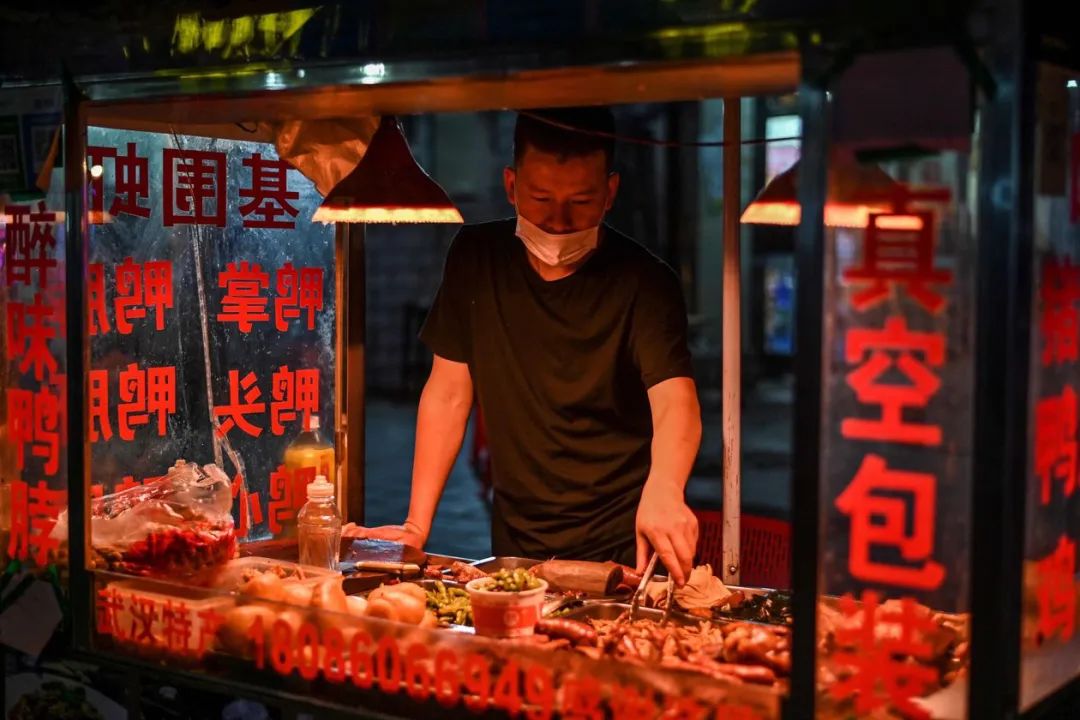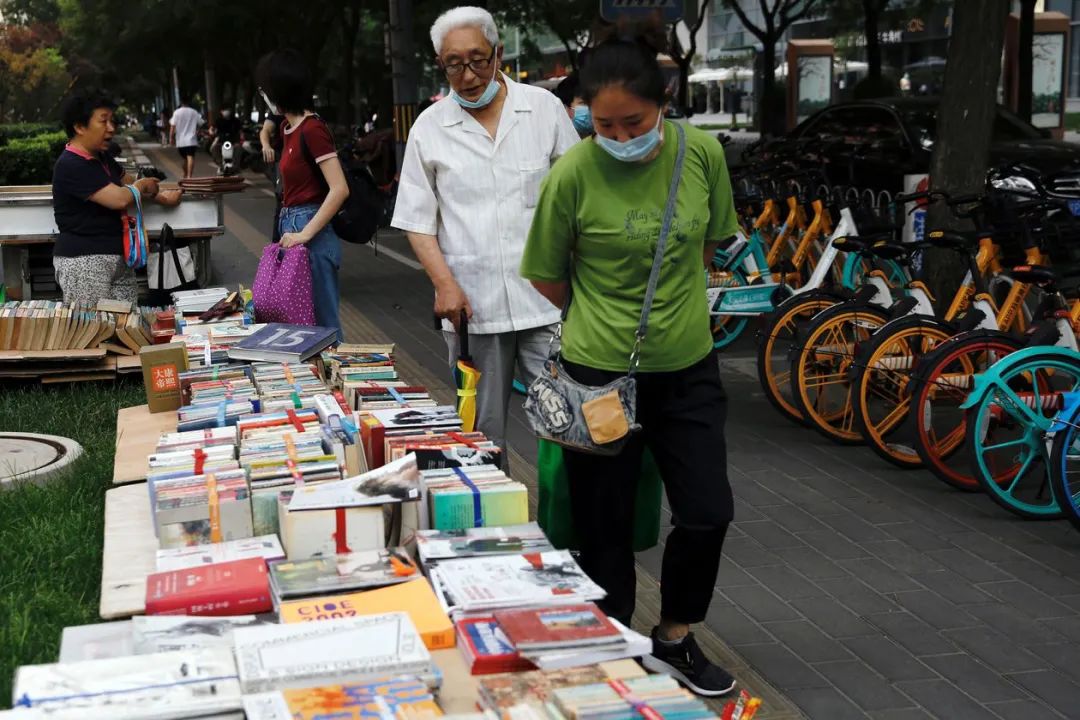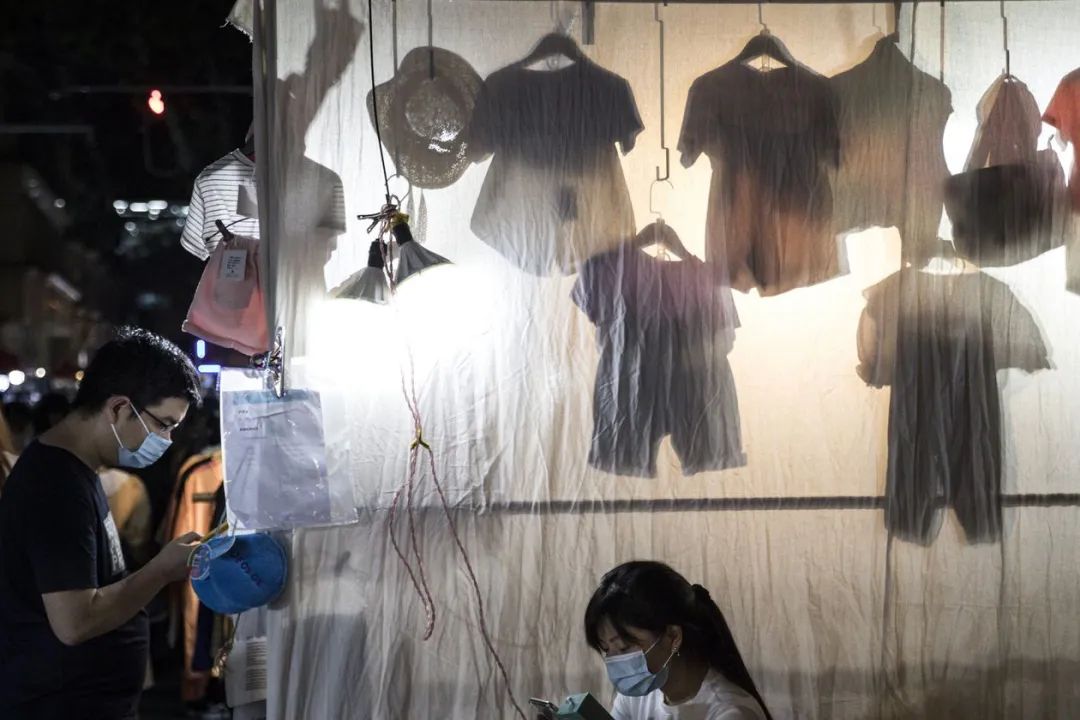
原标题:China Tries an Old Remedy to Revive Its Economy: Street Stalls
原作者:Jonathan Cheng
原刊于:Wall Street Journal, June 10, 2020 5:30 am ET
转载未获授权,如有授权请联系删除。
China spent much of the past two decades clamping down on street vendors in its biggest cities, part of an effort to clean up the country’s image, improve food safety and hygiene and more tightly regulate commerce.
clamping down: 严厉打击;严格限制
另外可以注意模仿下 clean up… improve … and regulate … 这个并列结构
Now, with China’s economy contracting for the first time since the 1970s, Chinese leaders want to fill the streets again with hawker stalls, food trucks and other kinds of sidewalk retailers. The question is how many will be willing to heed the call, and how much street vendors can move the needle for the world’s second-largest economy.
contract 这里是收缩的意思
关于路边摊(sidewalk retailers/street vendors)的几个名词表达:hawker stalls 叫卖小贩 food trucks 餐车
the question is … 这个过度的句式可以模仿下
After China’s gross domestic product contracted a historic 6.8% in the first quarter of the year, Premier Li broke with tradition in abandoning a formal GDP target for 2020. Instead, he told legislators last month, Beijing needed to focus on ensuring employment.
打破常规:broke with tradition
To that end, Chinese leaders have rolled out a string of measures to support hiring for fresh graduates, migrant workers, military veterans and millions of other workers who have lost their jobs in the pandemic, with the official target of creating 9 million new jobs and keeping the official urban jobless rate at around 6% or lower.
to that end… 为实现这个目标
铺开了一系列的举措:roll out a string of measures…
6% 的失业率是一个什么概念。参考下下面美国刚公布的失业率

But the initiative that has drawn the most attention is Mr. Li’s effort to encourage entrepreneurialism at the micro-scale—street stalls and small shops, which he described last week as being “as vital to China as bigger and more high-end businesses.”
“The country will get better if the market, enterprises and individual business owners survive and develop. We will support you,” he said, while hailing streetside food stalls’ contributions to “human culinary culture.”
hail:称颂
Street vending was once a vibrant part of China’s private economy, providing cheap and handy products and services to customers. Without renting a booth or even hiring any staff, a vendor could start a business almost right away, with a tiny investment. These businesses helped absorb the vast population of laborers who were fired as Beijing moved to overhaul its bloated and inefficient state-owned companies in the 1990s.
前文vendor 是小贩,这里vending 是那个摊位
overhaul:彻底改革
bloated: 臃肿的
After the Chinese economy took off, officials and some citizens came to see street vendors as chaotic and unruly. Dogged by complaints over food-safety violations, counterfeit goods and environmental damage, vendors in some big cities were forced into the suburbs or out of cities completely.
dogged: 来自于dog 做动词,表示困扰, 尾随
counterfeit goods:假货
During his annual news conference last month, the premier signaled an apparent reversal of the C P’s verdict on vendors. He praised the large southwestern city of Chengdu, a metropolis of 14 million people that he said had created 100,000 jobs in just a few weeks by allowing 36,000 street vendors back onto the streets.
verdict: 裁决 . 这里指组织上改变(reverse)了之前对于小贩的定位。
One of Chengdu’s new street vendors, Li Zhenzhen, said business was starting to pick up after she and a friend pooled their resources in mid-May to source jewelry from a wholesale market. At the start they went entire days without selling a pair of earrings, but on Sunday alone they pulled in sales totaling 1000 yuan, or $140, enough to cover their initial investment.
pick up: 起色
“I had been sitting idle at home for months without any income,” Ms. Li said. “If the business really goes well, I will consider opening an online store.”
idle 闲散

In the past few days, a slew of cities, including Shanghai, Hangzhou, Nanjing, Changsha, Qingdao and Foshan have introduced similar measures loosening regulations for street vendors.
a slew of 类似于前文的 a string of, 可以理解为一些
China’s biggest retail giants, including Suning.com Co., Tencent Holdings Ltd. and Alibaba Group Holding Ltd. are jumping in too, with cheap loans, logistics help and online promotions for owners of small stalls. Meanwhile, Chinese investors are snapping up shares of beer brewers, some food producers and a motor vehicle company that makes cargo vans which can be converted into mobile stores.
jump in 入局
snap up 抢购
Economists say there is some logic to the government’s push. Lower-income people and small businesses have been hit the hardest by the pandemic-induced downturn. By targeting economic activity with few barriers to entry, the hope is to quickly help lower-income earners find a stable footing.
there is some logic to … 有一定道理的表达可以积累下
find a stable footing 站稳脚跟
But many also wonder whether the hype around street stalls has much grounding in reality.
have much grounding:有道理的另外一个表达
“It definitely helps with employment but the extent of boosting overall economic growth may still be very limited,” says Fan Lei, a Shanghai-based economist at Sealand Securities. “They don’t really have other good options in the short term.”

Mr. Fan, extrapolating from the premier Mr. Li’s claims about the boost to Chengdu’s employment, estimates that the street-stall plan could create as many as 2 million jobs across the country, thus in theory shaving about 0.2 percentage points off the country’s surveyed urban unemployment rate.
extrapolate:推断
In practice, it is unclear whether these vendors—though technically employed—will be any better off economically. The street-food business was never easy to begin with, and the sudden burst of enthusiasm could end in tears for many new market entrants.
可以注意下这段的in practice 和上段的in theory 之间的对应
In the longer run, the reappearance of street stalls is likely to reintroduce the same problems with food quality and counterfeiting that led the government to crack down in the first place, Mr. Fan said.
in the longer run: 从更长远来看
crack down 等于第一段的clamp down
Indeed, a commentary in Beijing Daily newspaper insisted over the weekend that the capital city wasn’t a suitable place for street vendors, underscoring the lingering uncertainties around the new policy.
linger:留存
On Tuesday, China’s Twitter -like Weibo social media platform appeared to block the hashtag for any posts related to the street-stall economy, giving an error message that cited unspecified “relevant laws.”
Despite the inherent uncertainties of the trade, many Chinese are eager to give it a go.
give it a go: 试试
Wang Jinyu, who worked with her husband selling snacks on the sidewalks of Beijing for more than a decade before a crackdown on street vendors several years ago, was delighted by Mr. Li’s call for more street-stall activity.
delight 开心
The crackdown had forced the couple to return to their home in central Hubei province. Ms. Wang said she is eager to get back to her business.
Doling out fried chicken and stinky tofu, a favorite in many parts of China that she sold for 10 yuan, or $1.20, a serving, Ms. Wang and her husband were able to earn around 10,000 yuan each month in Beijing—much more than they could make back home, and enough for them to handle the down payment two years ago on an apartment in Hubei for their grown son.
dole out: 发放
stinky tofu: 臭豆腐
down payment 首付
But Ms. Wang remains wary. She recalls working from dawn to dusk in Beijing, constantly on the lookout for the dreaded chengguan, or urban management enforcers. The chengguan were known for zealous, sometimes violent, crackdowns on businesses such as Ms. Wang’s, which was technically illegal under city management rules.
from dawn to dusk 起早贪黑
dread 可怕
Ms. Wang knows this from bitter experience. She once had her cart and kitchenware confiscated.
confiscate 没收
“If you are not careful and get caught by the chengguan, you lose everything,” she said.
— Grace Zhu, Liyan Qi, and Qianwei Zhang contributed to this article.
用英文输出中文信息
本文源自微信公众号:LABcircle
